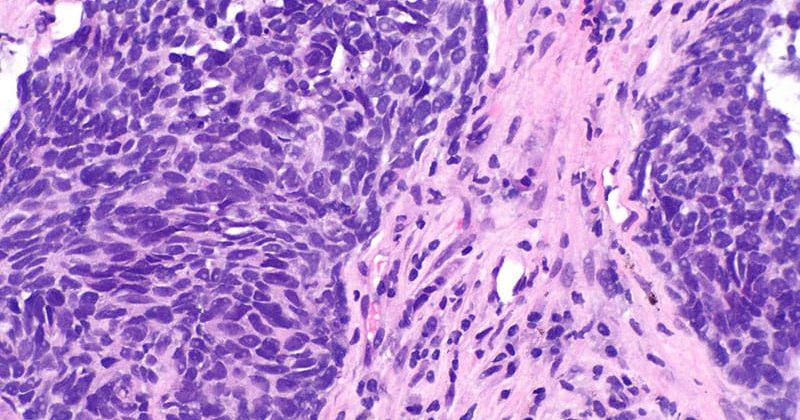Immunotherapy is currently integral to the treatment of non–small cell lung cancer (NSCLC). However, not all patients benefit from immunotherapy, and predicting who will respond and who won’t has proved difficult.
A recent meta-analysis may provide some clarity. The researchers identified three subgroups of patients who do not respond well to treatment with the eight immune checkpoint inhibitors approved for NSCLC.
The research, which appeared at the 2023 annual meeting of the Society for Immunotherapy of Cancer, was also published in the Journal for Immunotherapy of Cancer.
Study author Mark Gramling, PhD, cautioned that, while promising, these findings are not yet ready to be integrated into clinical decision-making. At this point, the best use for these results is in drug research and development, said Gramling, vice president of oncology at Larvol, San Francisco, California.
Given the range of clinical outcomes observed among patients with NSCLC who underwent treatment with immunotherapy, the authors wanted to identify subgroups more likely to have poor responses. In the current meta-analysis, Gramling and colleagues identified 34 randomized phase 3 trials that compared at least one immunotherapy agent — pembrolizumab, cemiplimab, nivolumab, atezolizumab, durvalumab, tislelizumab, toripalimab, or avelumab — to nonimmunotherapy regimens among patients with NSCLC.
The team organized the data into 24 subgroups on the basis of patient demographics, clinical factors, and mutation status, which included EGFR, KRAS, TP53, and NOTCH 1–4 mutations, tumor mutation burden, race, brain metastasis, PD-L1, and smoking status. The investigators then compared immunotherapy and nonimmunotherapy responses among the eight agents.
Consistent with previous data, the analysis showed that patients with EGFR mutations, PD-L1 below 50%, and tumor mutation burden under 16 had poor responses to immunotherapy across all eight agents. Patients with NOTCH 1–4 mutations, however, demonstrated more favorable responses to immunotherapy.
“In our view, identifying poor responding subgroups, such as low PD-L1 expression, low tumor mutation burden, and EGFR mutation, can aid in patient stratification when determining how suitable a candidate is for immunotherapy,” said study co-author Judith Pérez Granado, PhD, associate director of bioinformatics at Larvol.
Roxanne Nelson is a registered nurse and an award-winning medical writer who has written for many major news outlets and is a regular contributor to Medscape.
Source: Read Full Article
